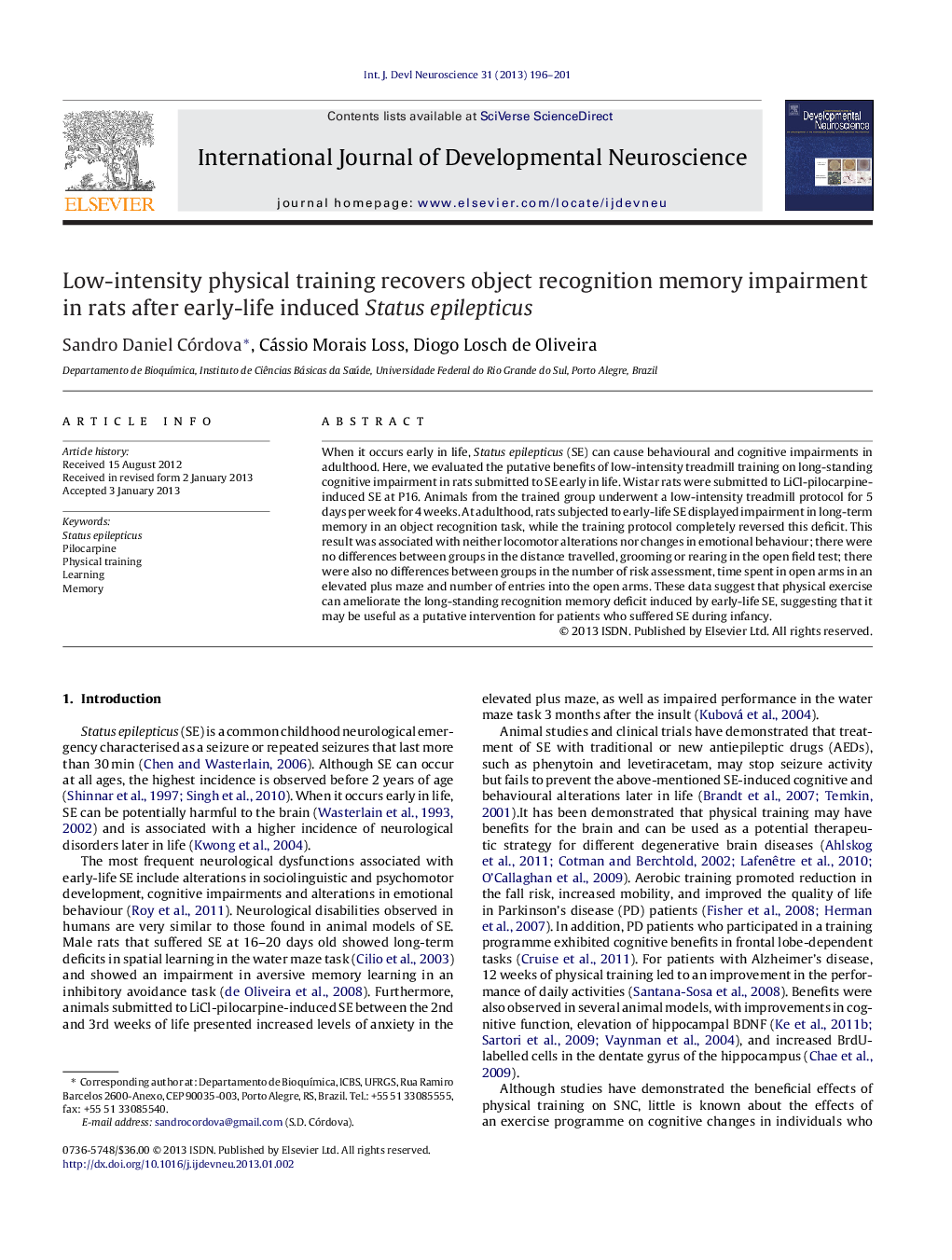| Article ID | Journal | Published Year | Pages | File Type |
|---|---|---|---|---|
| 2786007 | International Journal of Developmental Neuroscience | 2013 | 6 Pages |
When it occurs early in life, Status epilepticus (SE) can cause behavioural and cognitive impairments in adulthood. Here, we evaluated the putative benefits of low-intensity treadmill training on long-standing cognitive impairment in rats submitted to SE early in life. Wistar rats were submitted to LiCl-pilocarpine-induced SE at P16. Animals from the trained group underwent a low-intensity treadmill protocol for 5 days per week for 4 weeks. At adulthood, rats subjected to early-life SE displayed impairment in long-term memory in an object recognition task, while the training protocol completely reversed this deficit. This result was associated with neither locomotor alterations nor changes in emotional behaviour; there were no differences between groups in the distance travelled, grooming or rearing in the open field test; there were also no differences between groups in the number of risk assessment, time spent in open arms in an elevated plus maze and number of entries into the open arms. These data suggest that physical exercise can ameliorate the long-standing recognition memory deficit induced by early-life SE, suggesting that it may be useful as a putative intervention for patients who suffered SE during infancy.
► Rats submitted to SE early in life presents impairment in recognition memory. ► Low intensity physical training reverses the SE-induced memory impairment. ► Exercise may be considered as an adjunctive therapy for patients that suffered SE.
